New College of Engineering faculty
New College of Engineering faculty
| Magazine Section: | Our People, Our Culture |
|---|---|
| College or School: | CoE |
| Article Type: | Issue Feature |
| Feature Intro: | Join us in welcoming our newest members of the College of Engineering faculty. |
Dionysios Aliprantis
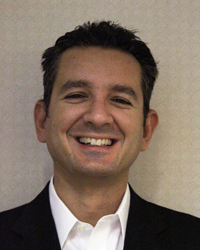
Associate Professor of Electrical and Computer Engineering
Dionysios Aliprantis earned a PhD in electrical and computer engineering from Purdue in 2003, and a diploma in ECE from the National Technical University of Athens, Greece, in 1999. He worked as a research scientist for Purdue’s School of Electrical and Computer Engineering in 2006-07. Before returning to Purdue to join the faculty in August 2013 as a member of the Power and Energy Devices and Systems group, he was an assistant professor of ECE at Iowa State University. His research interests include electromagnetic energy conversion and electric machinery, power electronics, and power systems analysis. More recently his work has focused on technologies that enable the integration of renewable energy sources in the electric power system, and the electrification of transportation. He currently is serving as an associate editor for the IEEE Transactions on Energy Conversion.
Robert Bean
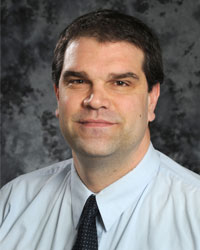
Assistant Professor of Nuclear Engineering
Robert Bean received a BS (summa cum laude), MS and PhD from Purdue, all in nuclear engineering, in 1995, 1999 and 2003, respectively.
His research interests include application of advanced safeguards to the design of nuclear facilities (next-generation nuclear reactors, aqueous processing plants, and pyroprocessing facilities), radiation detection and measurement (gas detectors, solid state detectors, gamma spectroscopy, neutron detectors).
Bean was director of the Radiation Laboratories for Purdue’s School of Nuclear Engineering from 1996 to 2003. In addition to working with the reactor supervisor to operate and maintain the PUR-1 reactor, he taught the radiation detection laboratory courses and introductory nuclear engineering courses, and acted as the undergraduate advisor.
David Cappelleri
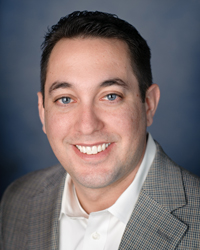
Assistant Professor of Mechanical Engineering
David Cappeleri received BS and MS degrees in mechanical engineering from Villanova University and Pennsylvania State University, respectively, and a PhD in mechanical engineering and applied mechanics from the University of Pennsylvania.
Before coming to Purdue, he was an assistant professor of mechanical engineering at Stevens Institute of Technology, Hoboken, New Jersey. His research interests include multi-scale robotic manipulation and assembly, mobile micro/nano robotics, micro-bio robotics, mechatronics, robotic system integration, medical robotics, MEMS/NEMS, micro/nano aerial vehicles, and automation for the life sciences.
Konstantina "Nadia" Gkritza
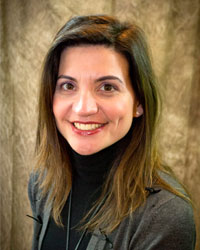
Associate Professor of Civil Engineering and Agricultural and Biological Engineering
Konstantina “Nadia” Gkritza received a diploma in civil engineering in 2001 from the National Technical University of Athens, Greece, and a master’s in civil engineering in 2003 from Virginia Polytechnic Institute and State University. In 2006, she received a PhD in civil engineering from Purdue.
Before joining Purdue, Gkritza was an assistant professor in the Department of Civil, Construction, and Environmental Engineering at Iowa State University and director of the Sustainable Transportation Systems Program (STSP) at the Institute of Transportation. She has successfully led several federal-, state- and industry-funded projects/programs, totaling more than $3.5 million in awards focused on economic analysis of highway investments and modeling, transportation and energy interdependencies, highway safety and sustainability.
Craig Goergen
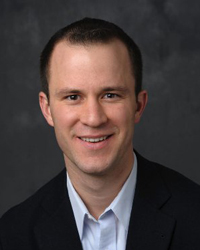
Assistant Professor of Biomedical Engineering
Craig J. Goergen obtained a BS in biomedical engineering from Washington University in St. Louis and MS and PhD degrees in bioengineering from Stanford University.
His postdoctoral research fellowship at Harvard Medical School focused on optical imaging of cardiac disease. He joined the Purdue faculty in December 2012, and is the principal investigator for the Purdue Cardiovascular Imaging Research Laboratory (CVIRL). His current research interests focus on developing advanced imaging techniques to study cardiovascular disease. Through the use of biomedical optics, magnetic resonance and ultrasound, his group is studying a variety of diseases, including abdominal aortic aneurysms, congenital heart disease, atherosclerosis and left ventricular hypertrophy. Ultimately, Goergen hopes to help develop therapeutics, devices and imaging techniques to directly improve patients' lives.
Rajamani Gounder
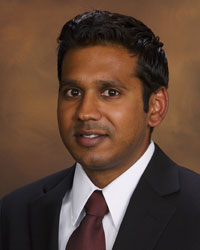
Assistant Professor of Chemical Engineering
Rajamani Gounder received a BS in chemical engineering from the University of Wisconsin in 2006 and a PhD in chemical engineering from the University of California, Berkeley in 2011.
Gounder’s doctoral research focused on fundamental studies of hydrogen management in the catalytic conversion of petroleum and hydrocarbons on acidic zeolites. Before coming to Purdue, he was a postdoctoral scholar at Caltech, where he researched catalytic routes and materials relevant in the conversion of renewable biomass and carbohydrates. At Purdue, he leads an experimental research group specializing in three main areas: the synthesis of inorganic catalysts with tailored properties, the characterization of catalyst active site and support structures, and the evaluation of catalytic function using fundamental kinetic and mechanistic descriptors. His research interests lie in applying these tools, and at the forefront of the science and technology of heterogeneous catalysis, as well as in relevant issues in fuel and chemical production and environmental protection.
Jeffrey Greeley
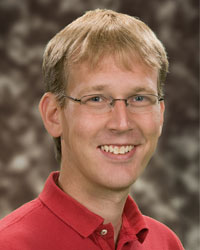
Associate Professor of Chemical Engineering
Jeff Greeley obtained a bachelor’s degree in chemical engineering with highest honors from University of Texas-Austin in 1997, and a PhD in chemical engineering from University of Wisconsin-Madison in 2004. He also holds a 1999 Certificate of Advanced Studies in Mathematics with Distinction from Cambridge University. From 2004 to 2006, he was the Hans Christian Ørsted postdoctoral fellow at the Technical University of Denmark, working with Professor Jens Norskov. Before coming to Purdue he led a team at Argonne National Laboratory, where he focused on computational studies of nanomaterials for renewable energy applications. His research looks at the use of first principles Density Functional Theory calculations performed on massively parallel computer architectures to study the surface and interfacial properties of heterogeneous catalysts, electrocatalysts and energy storage materials. He seeks to develop novel strategies to understand molecular-level transformations, including chemical bond breaking and formation, electrochemical charge transfer, and surface-phase stability, at these interfaces. Working closely with experimental collaborators, he works to apply insights derived from these fundamental investigations to the prediction and testing of new, engineered materials for metal and oxide catalysts, fuel cells, electrolyzers and batteries.
Susan Hunter

Assistant Professor of Industrial Engineering
Susan Hunter received both BS and M.Stat degrees in statistics from North Carolina State University in 2003 and 2004, respectively. She received a PhD from the Grado Department of Industrial and Systems Engineering at Virginia Tech in 2011.
From 2011 to 2013, she was a postdoctoral associate at Cornell University in the School of Operations Research and Information Engineering.
Her research interests include Monte Carlo simulation modeling and analysis, simulation optimization, and applied probability and statistics with an emphasis on simulation optimization methods in the presence of multiple performance measures.
Morgan Hynes
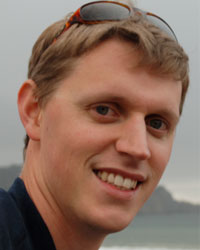
Assistant Professor of Engineering Education
Morgan Hynes received a BS and PhD in mechanical engineering at Tufts University in Massachusetts in 2001 and 2009, respectively.
He conducts engineering education research in K-12 and college settings. His main research interest is in how students and teachers engage in and reflect upon the engineering design process. His research includes investigating how teachers conceptualize and teach engineering through in-depth case study analysis. In the K-12 classroom, he is interested in how settings (i.e., physical classroom setup) and contexts (i.e., integrating more of the social sciences and humanities) influence students’ engagement in and understanding of engineering and design.
Tae Yoon Kim

Assistant Professor of Biomedical Engineering
Taeyoon Kim received a BS in mechanical engineering at Seoul National University in 2004, and MS and PhD degrees in mechanical engineering at Massachusetts Institute of Technology in 2007 and 2010, respectively.
Most recently he held a postdoctoral position at the Institute for Biophysical Dynamics at the University of Chicago, developing and using state-of-the-art computer simulations to compute macroscopic dynamics of actin networks from realistic nanoscale representations of their constituents. At Purdue, Kim is developing a research program to address central problems in biomechanics: the microscopic origins of actomyosin contractility and cellular viscoelasticity and mechanotransduction. He is the principal investigator for the Molecular, Cellular, and Tissue (MCT) Biomechanics Laboratory, which studies diverse mechanical behaviors of biological matter, using cutting-edge computational models that span subcellular levels to the cell and tissue levels.
Tamara Kinzer-Ursem
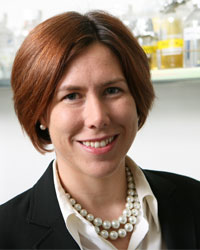
Assistant Professor of Biomedical Engineering
Tamara Kinzer-Ursem received a bachelor’s degree in bioengineering from the University of Toledo and master’s and PhD degrees in chemical engineering from the University of Michigan.
Before coming to Purdue she was a visiting associate at Caltech in chemistry and chemical engineering, and head of biochemistry research and development at Maven Biotechnologies in Pasadena, Calif. Immediately after receiving her PhD, she accepted a postdoctoral position in molecular neuroscience at Caltech. While at Caltech, her collaboration with David Tirrell led to the engineering of neuronal proteins that are functionalized with bioorthogonal reactive groups, and she has also built microfluidic devices that enable quantitative, high-throughput biochemical assays. Her current research program combines these techniques in the development of technologies that enable high-throughput, quantitative characterization of protein network regulation. This inherently interdisciplinary research has formed the focus of quantitatively studying the protein signaling networks that form the molecular basis of learning and memory, specifically the processes that control neuronal synaptic strength.
Rebecca Kramer
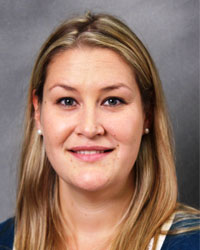
Assistant Professor of Mechanical Engineering
Rebecca Kramer received a BS in mechanical engineering at Johns Hopkins University, an MS in mechanical engineering at the University of California, Berkeley and a PhD in engineering sciences at Harvard University.
Her research focuses at the intersection of materials, manufacturing and robotics. She has innovated in the areas of soft sensing, stretchable electronics and digital fabrication with soft materials.
Zhongming Liu

Assistant Professor of Biomedical Engineering and Electrical and Computer Engineering
Zhongming Liu received BS and MS degrees in electrical engineering from Zhejiang University in China in 2000 and 2003, respectively. He received a PhD in biomedical engineering from the University of Minnesota-Twin Cities.
Before joining Purdue, he was a research fellow in advanced MRI within the Laboratory of Functional and Molecular Imaging at the National Institutes of Health. His primary research interest is the development and application of innovative imaging methods, such as MRI, EEG, MEG and ECoG, to study brain function and anatomy. He has recently made significant progress in developing a novel fMRI-EEG integrated-imaging technique for mapping comprehensive neural networks in the human brain.
Joyce Main

Assistant Professor of Engineering Education
Joyce Main earned an EdM in administration, planning and social policy from the Harvard Graduate School of Education, and a BA in integrative biology from the University of California, Berkeley. She also received a PhD in learning, teaching and social policy from Cornell University focusing on higher education policy, social stratification, organizational behavior and quantitative methods.
Her research focuses on factors that influence diversity in higher education institutions, and examining programs and policies that influence postsecondary engineering student academic and employment success.
Amy Marconnet
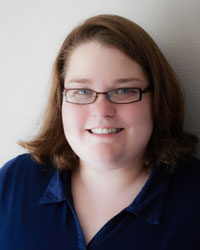
Assistant Professor of Mechanical Engineering
Amy Marconnet received a BA in mechanical engineering from the University of Wisconsin-Madison in 2007, and master’s and PhD degrees in mechanical engineering from Stanford University in 2009 and 2012, respectively. Her dissertation focused on thermal phenomena in nanostructured materials. She then worked briefly as a postdoctoral associate at the Massachusetts Institute of Technology.
Her ongoing research focuses on energy conversion and heat transfer, in particular at the micro and nanoscale. It integrates metrology and analysis of underlying transport mechanisms with design and development of nanostructured materials.
Tamara Moore

Associate Professor of Engineering Education
Tamara Moore obtained all of her degrees at Purdue: BS in mathematics in 1996, BSBSE in interdisciplinary engineering in 2008, MSEd in mathematics education in 2001; and a PhD in engineering education in 2006.
Moore’s research, which currently includes three National Science Foundation-supported projects, is centered on the integration of STEM concepts in K-12 and higher education mathematics, science and engineering classrooms in order to help students make connections among the STEM disciplines and achieve deep understanding. Her research agenda focuses on defining STEM integration and investigating its power for student learning. She is creating and testing innovative, interdisciplinary curricular approaches that engage students in developing models of real world problems and their solutions. Her research also involves working with educators to shift their expectations and instructional practice to facilitate effective STEM integration.
Mary Pilotte
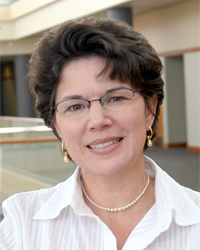
Associate Professor of Engineering Practice in Engineering Education
Mary Pilotte received a BS in organizational leadership and supervision at Purdue in 1986 and an MBA from the Goizueta School of Business, Emory University, in 2001. She returned to Purdue for a PhD in engineering education in 2013.
She has worked for more than 20 years in automotive, aerospace, airline and commercial products industries, having held a variety of industrial leadership roles including manufacturing plant management, design-engineering management for new product and process development, and leadership of interdisciplinary integration teams for strategic mergers and acquisitions. She also has worked in the academic setting as managing director of the Dauch Center for Management of Manufacturing Enterprises and the Global Supply Chain Management Initiative for Krannert School of Management at Purdue.
Her research interests include industrial knowledge sharing and transfer, and the exploration of engineering work culture including generations-based engineering practices and norms.
Timothee Pourpoint
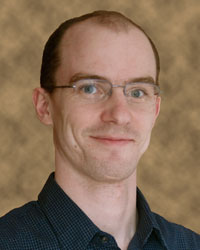
Associate Professor of Aeronautics and Astronautics
Timothee Pourpoint obtained a BS in mechanical engineering in 2000 at ESTACA University, Paris, France. He received a master’s degree in mechanical and aerospace engineering in 2000, from the University of Alabama in Huntsville and a PhD in aeronautical and astronautical engineering from Purdue in 2005.
His research focuses on space propulsion and energy storage systems. He has worked extensively with designing, implementing, testing and analyzing liquid rocket engines and high-pressure systems and has experience spanning from torched ignited oxygen-methane combustors to liquid hypergolic propellants including hydrogen peroxide, IFRNA, and MMH. He has led several hydrogen storage research projects involving metal hydrides and cryogenic sorbent materials.
Pavlos Vlachos
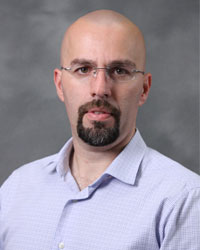
Professor of Mechanical Engineering
Pavlos Vlachos received a diploma in mechanical engineering from the National Technical University of Athens in 1995 and master’s and PhD degrees from Virginia Tech in 1998 and 2000, respectively. In 2003 he joined the Department of Mechanical Engineering at Virginia Tech as assistant professor and he was promoted to associate professor with tenure in 2007 before becoming a full professor in 2011. In addition to his Purdue faculty appointment, he holds affiliate appointments with the Wake Forest School of Medicine and the Virginia Tech departments of mechanical engineering, biomedical engineering and engineering science and mechanics.
Vlachos’ research focuses on experimental fluid mechanics specializing on flow diagnostics using non-invasive methods, and on development of sensors and measurement techniques. General research interests include particle image velocimetry, measurement science and instrumentation, multi-phase flows, interfacial flows, biological flows, and biofluid mechanics. Past research activities include wakes, boundary layers, flow control, and fluid structure interaction.
Current active projects deal with image velocimetry methods, uncertainty analysis, vortex induced vibrations and hydro-kinetic energy, multi-phase buoyant jets and plumes, water entry, animal drinking, gliding flight in nature, heart failure and diastolic dysfunction, quantitative medical imaging, arterial flows, blood damage, and engineered tumor micro-environments. He has performed and completed more than 60 externally funded projects for a total of more than $17 million in research expenditures.
Wenbin Yu
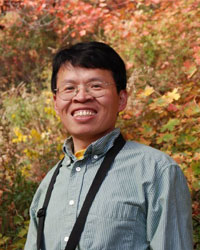
Associate Professor of Aeronautics and Astronautics
Wenbin Yu received a BS in hydraulic engineering at the North China University of Water Conservancy and Electric Power in 1995. He received two MS degrees: one in engineering mechanics in 1998 from Tsinghua University in Beijing, and one in aerospace engineering in 2000 from Georgia Institute of Technology. His 2002 PhD in aerospace engineering is also from Georgia Tech.
His areas of research include structural mechanics, micromechanics, multi-physics modeling, flexible multi-body dynamics and multi-scale modeling.
Yu also is the chief technology officer of AnalySwift, a company that markets and licenses the technologies developed in his group.

Comments